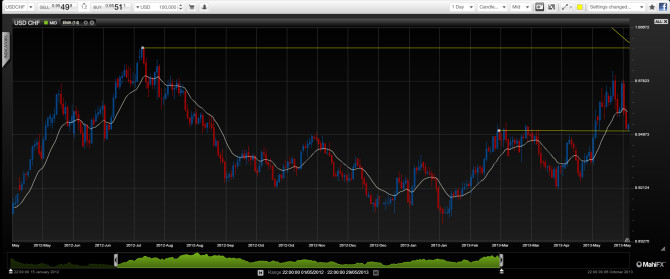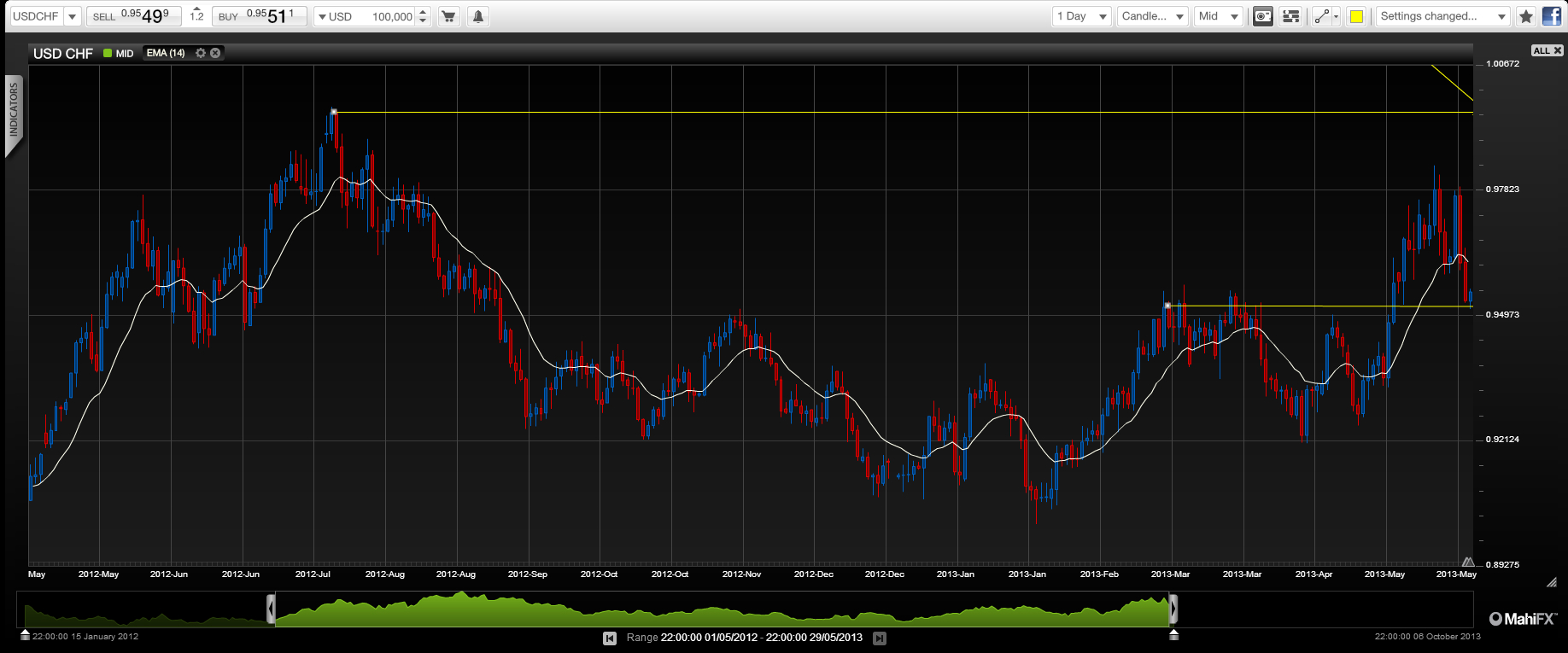Switzerland is proving its mettle as a safe haven economy with exports and domestic consumption doing well; however traders should remember that one of the reasons for this performance is the successful devaluation of CHF.
As currency devaluations go for developed economies few were more spectacular than the raid carried out by the Swiss National Bank in September 2011. A combination of shock monetary and verbal intervention saw it plunge around 10% in one day versus EUR and USD – leaving many traders and investors nursing severe losses.
By Justin Pugsley, Markets Analyst MahiFX. Follow MahiFX on twitter at: https://twitter.com/MahiFX
The Alpine state seems to be reaping the benefits and resembles a paragon of economic health and stability compared to the languishing Eurozone, which sits around its borders. GDP rose 0.6% in Q1, 1.1% on the year, and easily trouncing analysts’ expectations of 0.2% and 0.3% in the previous quarter. Since the devaluation Switzerland’s current account surpluses have shifted into double digit territory.
All this is very supportive for CHF, but even more so is the fact that the country is experiencing a real estate boom. These are usually very bullish events for currencies as speculators know that at some point the central bank will need to raise interest rates to douse inflationary pressures.
Beware of a CHF rally

Though CHF does have some upside potential, it would be foolish to expect to ride CHF too far on the upside versus EUR and USD. Exports are a key focus for Switzerland and the SNB is likely to intervene again, verbally at first, if there are signs that country is becoming uncompetitive in global markets.
Rather than raising interest rates, the SNB is looking to use macro-prudential tools such as forcing banks to hold more capital against mortgages to reduce the supply of funding to the real estate market. Though such measures can be effective, higher interest rates are often the best medicine to cool a run-away real estate market.
The issue of a strong currency will become all the more pressing if the global economy doesn’t pick-up momentum as other countries will focus on currency wars to gain market share with Switzerland being among the winners so far.
However, a very likely reignition of the Eurozone crisis will send more capital rushing for the safety of Switzerland and would also put upward pressure on CHF. All these factors suggest that the SNB could face some tough decisions in its bid to keep the national currency on a leash.
Switzerland as a country definitely remains a safe haven thanks to its enviable record of political and economic stability. The same cannot be said for its currency.
